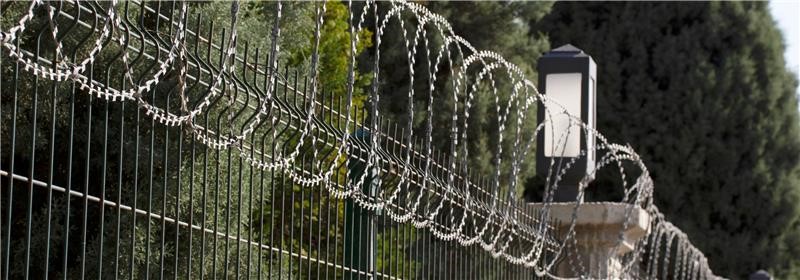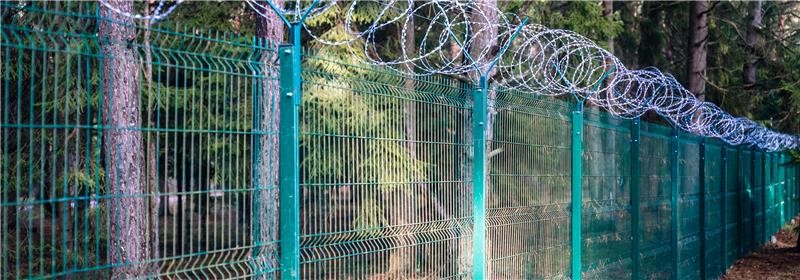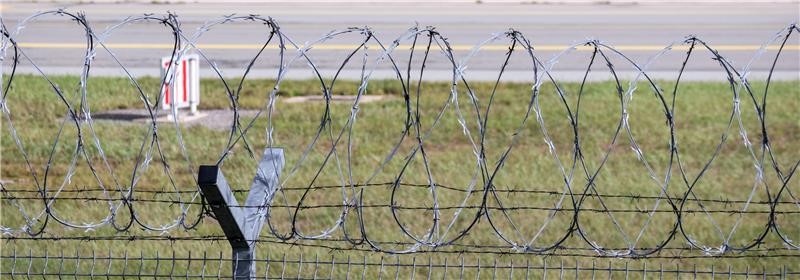Is Electric Fencing in India Legal? Benefits Cost and Everything You Need to Know
According to Indian Express, in Kerala alone, 37 people lost their lives in the last four years because of illegal electric fences. Most of these deaths happened on farmland or near forest areas where property owners tried to stop wild animals without following safety rules. And it shows how dangerous it can be when electric fencing is done without proper knowledge or permission.
So, for anyone owning property, it raises a big question: is electric fencing in India legal, and how can it be done safely? The short answer is yes, but only if safety norms and legal rules are followed carefully. Doing it the wrong way can be risky for humans, animals, and even your own legal standing. And trust us, a small mistake can become a huge problem.
In this blog, you’ll get to know what electric fencing is, whether it’s legal, its benefits, costs, and how our experts at PeriFence can help you set it up the right way.
What is electric fencing in India?
Electric fencing in India is basically a system of wires or cables that carry small electric pulses. These pulses give a mild shock when touched. It’s enough to stop humans or animals from crossing the boundary but not meant to be fatal.
Different people use it for various different reasons. Farmers install it to keep wild animals like elephants, boars, or deer away from crops. Homeowners and commercial property owners use it to secure boundaries and prevent outsiders from trespassing. And the fence works as both a physical and psychological barrier because animals and even humans learn to stay away once they feel the mild shock.
Now, we’ll get into the legal rules, benefits, cost, and how to install electric fencing properly so it’s safe and follows Indian laws.

Is Electric Fencing in India Legal?
Yes, electric fencing in India is legal, but only if you follow safety rules properly. Illegal fencing is dangerous and has caused deaths because some people connect wires to high-voltage mains or use uncertified energizers. And that’s really risky and legally punishable offence.
Here’s what you should keep in mind:
Certified energizer:
Always go for an ISI or BIS certified energizer. It keeps the voltage at safe levels. The shock should stop trespassers or animals without being lethal. Using uncertified devices is asking for trouble.
Warning signs
If your fence touches a public road, pathway, or any common area, make sure to put up big warning signs at regular intervals. Something like “Caution: Electric Fence” is enough to alert anyone nearby.
Physical barrier
Some states require a non-electric barrier before the fence, like a wall or a low fence. It’s for extra protection, especially if kids or pets can wander close.
Permission
You must get approval from the state Electrical Inspectorate. they make sure your installation follows legal and safety norms thoroughly.
But remember, if you skip any of these steps and someone gets hurt, you could face fines, criminal charges, or liability under the Electricity Act and Indian Penal Code. Following the rules protects you, your property, and everyone near the fence.
Even on farms or remote areas, getting legal approval is essential. A well-planned and certified fence reduces risk to humans and animals while keeping you safe from legal trouble.
Benefits of electric fencing in India
Protection from animals and intruders
A properly installed electric fence keeps wild animals away from your farms and stops unauthorized entry into homes or businesses. Farmers can save huge amounts during harvest season, and homeowners get peace of mind.
Privacy and boundary marking
Electric fencing shows your property lines clearly without needing tall walls or heavy brick barriers. It looks neat and works for rural and urban settings.
Peace of mind
Knowing your property is secured legally and safely reduces stress. You can actually relax, knowing your family, livestock, or assets are protected.
Cost-effectiveness
Compared to big walls or permanent barriers, electric fencing is cheaper to install and maintain. Energizers, wires, and posts need occasional checks, but repairs don’t break the bank.
Flexibility and easy maintenance
Electric fencing can run on electricity, solar panels, or batteries. And you can switch sections off or add gates for controlled access. Regular checks keep it running without major costs.
Long-term durability
When installed correctly, the wires and energizers can last many years. Proper grounding also prevents damage from storms or power surges.
Customizable
Whether you have a small plot or a large farm, the system can be adjusted to fit your needs.
So, electric fencing in India is not just about security—it’s about convenience, flexibility, and long-term protection.

Cost of electric fencing in India
The cost depends on property size, energizer type, wire quality, and labor charges. Here’s a rough guide:
Component | Typical Cost Factors |
Energizer (certified) | Starts around ₹10,000 for basic ISI/BIS certified energizers; higher power units cost more. |
Wiring materials | Galvanized wires, insulators, and posts. Costs vary by length and terrain. |
Labour & installation | Skilled electricians or installers charge depending on complexity and property size. |
Permits & inspections | Fees for approvals, signage, and optional physical barriers. |
Maintenance | Regular checks, earthing inspections, and minor replacements. |
For instance, a 1-acre farm may cost ₹50,000–₹70,000 for a full electric fence. And bigger properties or commercial sites can cost more depending on terrain and materials. Maintenance is usually affordable if done every few months.
Hiring experts like PeriFence ensures your installation is legal and efficient. They help pick the right energizer, plan the layout, set up warning signs, and get all permits. And honestly, this prevents mistakes that could end up costing you more later.
How PeriFence can help you with legal electric fencing in India
At PeriFence Fencing Solutions, we provide full support for safe and legal electric fencing:
- Consultation & Design: Our experts check your property, understand risks like animals or trespassers, and design a fence system that fits your needs and follows safety standards.
- Quality Materials & Installation: We use certified energizers, good wires, and proper insulators. Installation includes grounding and placing warning signs in the right spots.
- After-care & Maintenance: At PeriFence, we offer regular inspections, quick repairs, and guidance to keep your fence safe, working, and compliant.
With our expert fencing contractors, you can expect maximum protection without safety or legal worries. And you can finally sleep easy knowing it’s done right.

Conclusion
Electric fencing in India can give property owners safety, privacy and peace of mind. When installed correctly using certified energizers, warning signs, proper grounding and legal permissions, it keeps intruders and animals away while staying within the law. Many accidents happen when people skip these steps, so careful planning is really important.
If you’re considering fencing in Bangalore, whether for your home, farm, or business, Our experts ensure your electric fence is legal, safe, and reliable, giving you protection and peace of mind without any hassle.
FAQs
Is electric fencing in India legal for farms and homes?
What happens if someone is harmed by illegal electric fencing in India?
How much does electric fencing in India cost on average?
Will electric fencing keep my kids and pets safe?
How long will an electric fence last on my property?
With correct installation and regular checks on wires, energizers, and grounding, an electric fence can last for years to come. Minimal maintenance keeps it safe, functional, and reliable over time.
